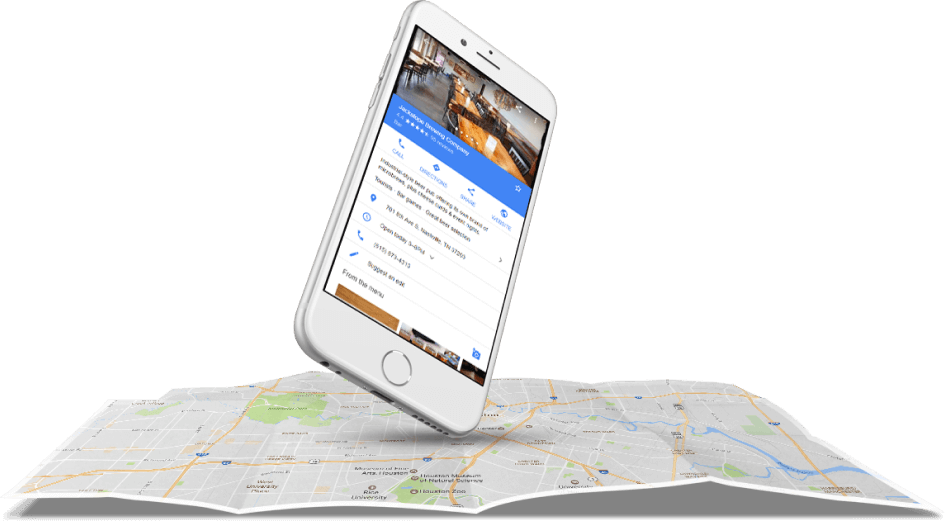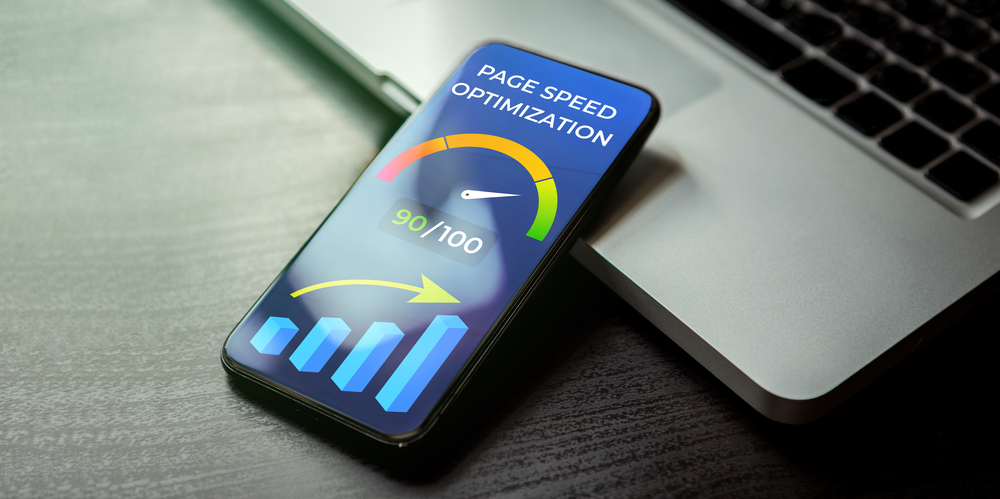Did you know that 90% of customers search online before deciding which restaurant to dine at? In today’s digital age, having a strong online presence is crucial for attracting more customers and staying ahead of the competition. That’s why implementing effective SEO strategies is essential for restaurants.
In this article, we will share seven valuable SEO tips that will help your restaurant improve its online visibility and attract more diners. From optimizing your website for local searches to creating high-quality content and leveraging social media platforms, these tips will ensure that your restaurant stands out in the online marketplace.
So, whether you’re a renowned fine dining establishment or a cozy neighborhood café, these SEO tips will pave the way for your success. Let’s dive in and discover how you can skyrocket your online visibility and bring more hungry customers through your doors.
Optimize Your Website for Local SEO
Local SEO is crucial for restaurants as it helps you target potential customers in your area. By optimizing your website for local SEO, you can ensure maximum visibility in local searches. Here are some key strategies to implement:
- Keyword Research: Identify relevant keywords that customers in your area are likely to search for, such as “best Italian restaurant in [your city]” or “local seafood restaurant.”
- On-Page Optimization: Incorporate these keywords naturally into your website’s content, meta tags, headings, and URLs.
- Localized Content: Create location-specific landing pages or blog posts that highlight local events, attractions, and partnerships.
- Google My Business: Claim and optimize your Google My Business listing, providing accurate information like your address, phone number, and opening hours.
- Online Directories: Ensure your restaurant is listed accurately on popular online directories like Yelp, TripAdvisor, and local business directories.
- Customer Reviews: Encourage satisfied customers to leave positive reviews, as they can boost your local SEO rankings and attract more diners.
- Mobile-Friendly Design: Optimize your website for mobile devices since many local searches are conducted on smartphones.
By implementing these strategies, you can improve your restaurant’s visibility in local search results, attract more local customers, and ultimately increase your revenue.
Example Table:
| Strategy | Description |
|---|---|
| Keyword Research | Identify relevant keywords for local searches |
| On-Page Optimization | Incorporate local keywords into your website’s content |
| Localized Content | Create location-specific landing pages or blog posts |
| Google My Business | Optimize your Google My Business listing |
| Online Directories | Ensure accurate listings on popular online directories |
| Customer Reviews | Encourage positive reviews from satisfied customers |
| Mobile-Friendly Design | Optimize your website for mobile devices |
Implementing these strategies will enhance your website’s local SEO performance and ultimately drive more customers to your restaurant.
Create High-Quality Content
When it comes to improving your restaurant’s online visibility and attracting more customers, creating high-quality content is key. Not only does it engage your website visitors, but it also helps improve your organic search rankings. By providing valuable and relevant content, you can establish your restaurant as an authority in your industry and drive more traffic to your website.
Incorporating Restaurant-Specific Keywords
One effective strategy to optimize your content for search engines is by incorporating restaurant-specific keywords into your website’s copy. SEO agencies for restaurants and restaurant marketing professionals understand which keywords are most relevant to your industry and target audience. By using these keywords strategically throughout your content, you can increase your chances of ranking higher in search engine results.
However, it’s important to strike a balance between keyword optimization and creating natural-sounding content. Stuffing your website with keywords can negatively impact your readability and user experience. Instead, focus on creating valuable and informative content that naturally incorporates relevant keywords.
Here are some tips for incorporating restaurant-specific keywords:
- Research relevant and commonly searched keywords for your restaurant’s niche.
- Include these keywords naturally in your website’s headings, subheadings, and body content.
- Write informative blog posts or articles that incorporate these keywords to attract potential customers.
- Optimize your meta tags, including the meta title and meta description, with relevant keywords.
- Use keyword-rich alt text for your restaurant’s images to improve accessibility and search engine visibility.
Content Types to Consider
When creating high-quality content for your restaurant’s website, consider diversifying the types of content you offer. This can help cater to different preferences and provide a more engaging experience for your audience. Here are some content types to consider:
| Content Type | Description |
|---|---|
| Blog Posts | Share informative articles related to your restaurant, such as recipes, cooking tips, or industry trends. |
| Videos | Create visually appealing videos showcasing your dishes, chef interviews, or behind-the-scenes footage. |
| Infographics | Present data or information about your restaurant in a visually appealing and easily digestible format. |
| Recipes | Share popular or signature recipes from your restaurant to engage food enthusiasts. |
| Customer Testimonials | Showcase positive reviews and testimonials from satisfied customers to build trust. |
By incorporating various content types, you can cater to different audience preferences and keep your website engaging and informative. Remember to analyze your website’s performance regularly to understand which content types resonate most with your audience and adjust your strategy accordingly.
Utilize Social Media Platforms
Social media platforms offer valuable opportunities for promoting your restaurant and improving its online visibility. By leveraging social media effectively, you can enhance your SEO efforts and attract more customers to your eatery. Here are some strategies to help you make the most of social media for SEO for your restaurant:
- Create engaging and shareable content: Develop captivating posts that showcase your restaurant’s unique offerings. This could include mouth-watering food photographs, behind-the-scenes videos, or special promotions.
- Interact with your audience: Respond to comments, messages, and reviews promptly to show your dedication to customer service. Engaging with your followers also helps build a loyal community and increases the chances of social media users sharing your content.
- Collaborate with influencers: Partnering with influencers who have a strong presence in the food and hospitality industry can expose your restaurant to a wider audience. Influencers can create content featuring your restaurant and share it with their followers, generating buzz and attracting new customers.
- Run contests and giveaways: Encourage user engagement and increase your social media following by organizing contests or giveaways. For example, you could offer a free meal for two to a randomly selected follower who likes and shares your post.
Remember to optimize your social media profiles by including relevant keywords related to your restaurant. This will help improve your search engine rankings and make it easier for potential customers to find your social media accounts when searching for restaurants in your area.
By utilizing social media platforms effectively, you can enhance your restaurant’s online visibility, attract more customers, and create a strong online presence for your brand.
Optimize Your Google My Business Listing
To achieve success in local SEO for restaurants, it is crucial to have a complete and optimized Google My Business listing. Your listing on Google My Business is the primary source of information for potential customers searching for your restaurant. By optimizing your listing, you can ensure that accurate and relevant information is presented to potential customers, improving your chances of attracting them to your establishment.
Here are some key steps to optimize your Google My Business listing for maximum local SEO impact:
1. Claim and Verify Your Business
The first step is to claim your business on Google My Business. This involves verifying that you are the rightful owner or representative of the restaurant. Once verified, you’ll have access to manage and update your listing.
2. Provide Complete and Accurate Information
Ensure that all essential information about your restaurant is provided accurately on your Google My Business listing. This includes your restaurant’s name, address, phone number, website, hours of operation, and any other relevant details. Remember to keep this information consistent across all online platforms to avoid confusion.
3. Choose Relevant Categories
Selecting the appropriate categories for your restaurant on Google My Business helps Google understand your business better and improve its visibility in relevant local searches. Choose categories that accurately reflect the type of cuisine and dining experience your restaurant offers.
4. Use High-Quality Photos
Upload high-quality photos of your restaurant’s interior, exterior, dishes, and ambiance to make your listing visually appealing. High-quality photos can grab the attention of potential customers and entice them to visit your restaurant.
| Benefits of Optimized Google My Business Listing: |
|---|
| Increased visibility in local searches |
| Improved chances of appearing in Google’s local map pack |
| Enhanced credibility and trust among potential customers |
5. Encourage Customer Reviews
Positive customer reviews on your Google My Business listing can boost your restaurant’s reputation and visibility in local searches. Encourage your satisfied customers to leave reviews and respond promptly and courteously to both positive and negative feedback.
6. Regularly Update Your Listing
Keep your Google My Business listing up to date with the latest information about your restaurant, such as changes in business hours, special promotions, or seasonal menus. Regularly updating your listing demonstrates that your restaurant is active and relevant.
By optimizing your Google My Business listing, you can significantly improve your local SEO for restaurants. Make sure your listing stands out from the competition and attracts potential customers to your establishment.
Next, we will explore the importance of generating online reviews and managing your restaurant’s online reputation.
Generate Online Reviews
Online reviews play a crucial role in shaping the reputation and visibility of your restaurant. Positive reviews not only attract potential customers but also improve your search engine rankings. In this section, we will share effective strategies to encourage customers to leave positive reviews and guide you in managing your online reputation.
Create an Outstanding Dining Experience
Providing excellent customer service and a memorable dining experience is the foundation for generating positive online reviews. Train your staff to deliver exceptional service, ensure prompt attention to customer needs, and create a welcoming atmosphere in your restaurant. By exceeding your customers’ expectations, you increase the likelihood of receiving favorable reviews.
Engage with Customers and Request Reviews
Actively engage with your customers to build a strong online presence. Encourage them to leave feedback and reviews on popular review websites such as Yelp, Google, and TripAdvisor. Utilize your website, social media platforms, and email newsletters to kindly request reviews from satisfied diners. Providing direct links to review platforms can make leaving a review easier for customers.
Respond to Reviews
Responding to both positive and negative reviews demonstrates that you value customer feedback and are committed to improving your restaurant. Thank customers for their positive reviews and address any concerns or negative feedback professionally and promptly. Your courteous and helpful responses can sway potential customers and show them that you prioritize their satisfaction.
Incentivize Reviews
Consider offering incentives to customers who leave reviews. For example, you could offer a small discount on their next visit or a free appetizer. However, be careful to comply with the policies of review platforms and avoid offering direct compensation for positive reviews. The goal is to encourage honest and genuine feedback from your customers.
Monitor and Manage Your Online Reputation
Regularly monitor online review platforms for new reviews and respond promptly. Address any negative reviews, offering resolutions or apologies if necessary. Responding promptly shows that you are attentive to customer feedback and that you genuinely care about their experience. Consider using online reputation management tools to streamline this process.
Showcase Reviews on Your Website
Display a selection of positive reviews on your website to build credibility and attract potential customers. Quote positive feedback from different platforms and highlight specific aspects of your restaurant that customers appreciate, such as exceptional cuisine or outstanding service. This social proof helps establish trust and encourages visitors to choose your restaurant.
| Benefits of Online Reviews | Strategies for Effective Review Generation |
|---|---|
|
|
Implement Mobile Optimization
With the increasing number of users accessing the internet through their mobile devices, optimizing your website for mobile is crucial. Mobile optimization ensures a seamless user experience on smartphones and tablets, driving more traffic to your restaurant’s website and increasing online visibility.
Why Mobile Optimization is Important for Your Restaurant
Mobile optimization has become a necessity in today’s digital landscape. Here’s why it’s essential for your restaurant:
- User experience: Mobile-optimized websites offer a smooth and intuitive experience for mobile users, allowing them to easily navigate your menu, view your location, and make reservations on their devices.
- Search engine rankings: Google prioritizes mobile-friendly websites in search results, meaning that a mobile-optimized website can improve your restaurant’s visibility and attract more potential customers.
- Local searches: Many diners search for restaurants while on the go. By optimizing your site for mobile, you can capture local customers searching for nearby dining options.
Tips for Mobile Optimization
To ensure your restaurant’s website is optimized for mobile, follow these tips:
- Responsive design: Use a responsive web design that automatically adjusts your website’s layout and content to fit different screen sizes. This ensures a consistent and user-friendly experience across all devices.
- Fast loading speed: Mobile users expect quick-loading websites. Optimize your images, minify CSS and JavaScript files, and use caching techniques to improve your website’s loading speed.
- Clear call-to-action buttons: Make it easy for mobile users to take action by incorporating clear and prominent call-to-action buttons, such as “Make a reservation” or “Order online.”
- Mobile-friendly menu: Design a mobile-friendly menu that is easy to read and navigate on smaller screens. Consider using collapsible sections or dropdown menus for better usability.
- Click-to-call functionality: Include click-to-call functionality, allowing users to easily contact your restaurant by tapping a phone number on your website.
- Optimize for local search: Incorporate local keywords and location-specific information in your website’s content to improve visibility in local searches.
By implementing these mobile optimization tips, your restaurant can provide a seamless and enjoyable mobile experience for your website visitors. This, in turn, can drive more traffic, increase engagement, and ultimately lead to more reservations and orders for your restaurant.
Monitor and Analyze SEO Performance
Monitoring and analyzing your restaurant’s SEO performance is crucial to identify areas of improvement and make data-driven decisions. By tracking your SEO progress, you can gain valuable insights into what strategies are working and where adjustments need to be made. Here are some tools and techniques to help you effectively monitor and analyze your restaurant’s SEO performance:
1. Google Analytics
Google Analytics is a powerful free tool that provides valuable data about your website’s performance. It allows you to track key metrics such as organic search traffic, bounce rate, average session duration, and more. By regularly analyzing this data, you can identify trends, understand user behavior, and uncover opportunities to optimize your website for better SEO results.
2. Keyword Ranking Tools
Utilizing keyword ranking tools like SEMrush or Ahrefs can give you valuable insights into how well your website is ranking for specific keywords. These tools allow you to track your keyword positions in search engine results pages (SERPs), monitor your competitors’ rankings, and identify keyword opportunities to improve your SEO strategy.
3. Backlink Analysis
Backlinks are an important factor in SEO, as they indicate to search engines the credibility and authority of your website. By analyzing your backlink profile using tools like Moz or Majestic, you can identify the quality and relevance of your backlinks. This information can help you build a strong backlink profile, improve your SEO rankings, and attract more organic traffic to your restaurant’s website.
4. Content Performance Analysis
Analyzing the performance of your content is essential to determine which pieces are resonating with your audience and driving traffic. Tools like BuzzSumo or Google Search Console can provide insights into the social engagement, click-through rates, and impressions of your content. By identifying high-performing content, you can optimize your SEO strategy and create more compelling content that attracts visitors to your website.
5. Local SEO Tools
If your restaurant relies on local customers, utilizing local SEO tools can be highly beneficial. Tools like BrightLocal or Whitespark can help you monitor your local search rankings, track customer reviews, and manage your online reputation. By optimizing your local SEO, you can improve your visibility in local search results and attract more customers to your restaurant.
By regularly monitoring and analyzing your restaurant’s SEO performance using these tools and techniques, you can make data-driven decisions to enhance your online visibility and attract more customers to your business.
| Tools | Purpose |
|---|---|
| Google Analytics | Track website performance metrics |
| Keyword Ranking Tools | Monitor keyword rankings and competitors |
| Backlink Analysis | Assess the quality and relevance of backlinks |
| Content Performance Analysis | Evaluate the effectiveness of your content |
| Local SEO Tools | Optimize local SEO and manage online reputation |
Conclusion
In conclusion, implementing these SEO restaurant tips can significantly enhance your eatery’s online visibility and attract more diners. By optimizing your website, creating valuable content, utilizing social media, and monitoring performance, you can stay ahead in the competitive restaurant industry.
To optimize your website for local SEO, focus on targeting potential customers in your area and ensuring maximum visibility in local searches. Creating high-quality content that engages your website visitors and incorporates restaurant-specific keywords is essential in improving your organic search rankings.
Leveraging social media platforms can effectively promote your restaurant and improve its online visibility. Furthermore, optimizing your Google My Business listing and encouraging positive online reviews are crucial for local SEO success. With the increasing number of users accessing the internet through their mobile devices, don’t forget to implement mobile optimization for a seamless user experience.
To continuously improve your restaurant’s SEO performance, make use of tools and techniques to monitor and analyze your progress. By doing so, you can identify areas for improvement and make data-driven decisions to further enhance your online visibility.
For professional support in implementing these strategies, contact Hyperlinks Media hosting services today at (281) 693-5372. Stay ahead of the competition and boost your restaurant’s online presence with expert guidance and assistance.








